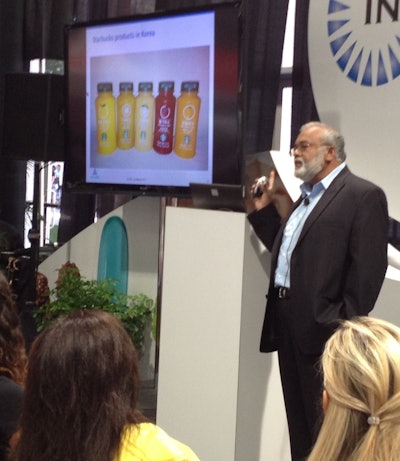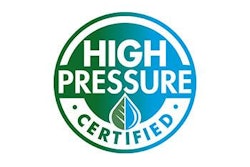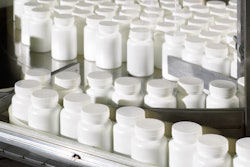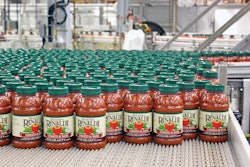
Starbucks juices in Korea use HPP from Avure
"You may not know this, but almost all of the sliced meats in the U.S. are actually being HPP-ed, even though it doesn't say that on the package, said Errol Raghubeer, vice president of microbiology & food technology with Avure Technologies, Franklin, TN, in a presentation at the Pack Expo 2013 Innovation Stage.
But what is HPP? High Pressure Processing is a non-thermal treatment that can be referred to as "cold pasteurization." It is lethal to pathogens and bacteria such as Listeria, E.coli, and Salmonella in refrigerated products—but leaves the "good bugs," or healthy and nutritious microbiological constituents intact. Instead of heating, and often heating the food product to ensure that the "bad bugs" are killed, which can overcook the food product itself, HPP bathes the product in ultra-high water pressure, up to 87,000 psi, to disable pathogens. Best of all, the water bath can be as low as 10 or 15 seconds, which bodes well for production throughput.
Most companies, especially high-volume meat and poultry brands, do not own their own systems, instead using use contract-manufacturing tolling services in Nebraska, Milwaukee, California and elsewhere at roughly eight U.S. sites.
Hormel Foods, which operates both branded and co-pack businesses, is one company using HPP. Hormel has a patent pending in partnership with Avure to increase the tenderness, cook yield and flavor of meats. "You can take a raw...very cheap cut of meat and give it the same textural profile as a filet mignon." One limitation is ground beef, which can be processed with HPP but requires extra consideration related to texture and appearance. Raghubeer showed additional products using HPP, including Starbucks juices in Korea (pictured above); fruit purees in Europe and Asia and ready-to-eat (RTE) meats worldwide.
Overall, applications are diverse, including RTE meats and raw ground beef and poultry; fresh fruits, juices, and smoothies; soups, wet salads, and sauces; and seafood and shellfish. Guacamole was one of the earliest applications, and condiments, yogurts and hummus have followed. Benefits to users include food safety assurance, extended shelf-life. "Almost anything that doesn't have a lot of air inside" that has been subject to traditional heat sterilization can be treated with HPP, Raghubeer said.
"Shelf life and quality extension in my view are what sells [HPP] to the industry," he continued. "It's common for HPP sliced meats to get four months of shelf life," Raghubeer said of meats in the refrigerated case. Processors like Hormel, for its Natural Choice brand meats, he added, benefit in those ways as well as achieving a "clean label" because "almost everyone who is using HPP in the meat and ready-to-eat meal industry are not using preservatives," he said. Some companies are still using natural diacetate and lactate as bacteria inhibitors, but companies are removing these as HPP proves its mettle. And, adds Raghubeer, "no one is using preservatives such as potassium sorbate and benzoates," or other chemical preservatives.
Most companies, especially high-volume meat and poultry brands, do not own their own systems, instead using use contract-manufacturing tolling services in Nebraska, Milwaukee, California and elsewhere at roughly eight U.S. sites.
























